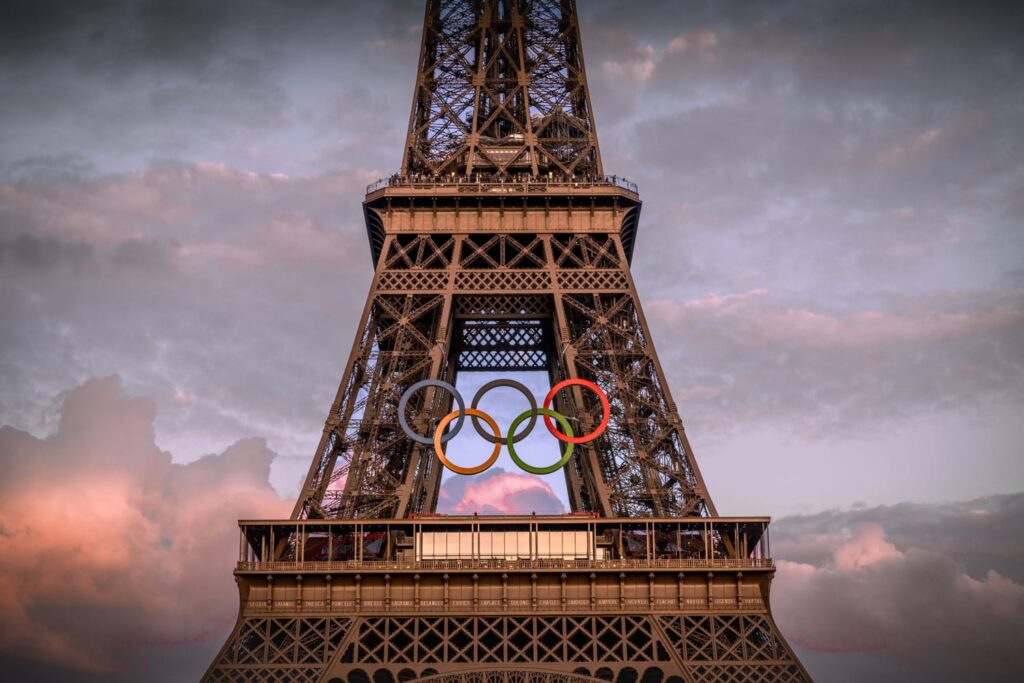Ahead of the Paris Olympics, athletes have voiced concern about scorching summer temperatures and say the effects of climate change could make them less competitive and make sports more dangerous.
In a new report published jointly by several climate advocacy and sports organisations in the UK and US, 11 athletes raised concerns about the environment at the upcoming Olympics and the longer-term challenges of sporting competition in a warming world.
According to the report, temperatures in Paris during the Olympic period from late July to early August will be more than 5.5 degrees Celsius higher on average than in 1924, the last time the city hosted the Olympics.
Jamie Ferndale, who represented Great Britain in Olympic rugby sevens, said Olympic athletes push their bodies to their “absolute limits” to earn a place on the world stage but feared the heat in Paris could be too much for some.
“Obviously when it gets to around 30 to 35 degrees, it gets pretty dangerous,” Ferndale said, referring to temperatures ranging from 86 to 95 degrees Fahrenheit. “We're playing six games in three days, so we can't really cool off in between.”
“I tried jumping in ice baths, I tried everything I could, but it just wouldn't cool me down. It just made me feel sick,” Ferndale added, recalling how he responded to past competitions.
Olympic organizers say they are preparing for tough conditions: They have scheduled events to avoid the heat and have developed a suite of heat-response tools to make the events safe, an International Olympic Committee spokesman said in a statement.
Temperatures at competition venues would be closely monitored, the statement said, adding that “providing the best and safest environment possible for athletes and spectators remains the top priority of the IOC and the entire Olympic Movement.”
The local organising committee for the Games, Paris 2024, said France's meteorological service, Météo-France, would have a full-time presence at the Olympic operations centre. It added that competition dates could be adjusted if necessary and that free water would be widely available to spectators.
Studies have shown that Paris is one of the European capitals most susceptible to heat waves: in 2003, a heat wave killed 15,000 people in France. Today, heat waves can be up to 7 degrees Fahrenheit hotter than they were in 2003, according to a study published in November.
Paris organizers are committed to reducing the Olympics' carbon footprint, as part of which the athletes' village's conventional air conditioning will be replaced with geothermal cooling and natural ventilation. After the games are over, the village will become permanent housing for Parisians.
Pragnya Mohan, an Indian triathlete and Olympic hopeful, said the lack of air conditioning could be a problem for athletes.
“They can't stay calm and can't recover as quickly. So, from an athlete's point of view, I think it's a negative. But from an environmental point of view, it's a positive,” Mohan said.
However, the Paris 2024 committee said temperatures in athletes' accommodation were expected to be at least 11 degrees Celsius lower than the outside temperature and that athletes would be allowed to rent “portable cooling units”.
“We believe we have found a good balance between our primary commitment to athletes' well-being and our responsibilities as major event organisers in the face of climate change,” the spokesperson wrote.
Discus thrower and 2020 U.S. Olympian Sam Mathis has questioned whether the world can continue to host the Summer Olympics during the hottest time of the year, with Los Angeles set to host in 2028.
“I think in many parts of the U.S. and the world, summer athletics will be virtually impossible unless they are held at midnight,” Mattis said.
During the Tokyo Olympics, where temperatures exceeded 95 degrees Fahrenheit and humidity reached about 70 percent in some outdoor venues, about 110 athletes suffered heatstroke, including 10 cases of severe heatstroke, according to a study published in April 2023. Several athletes required ice baths to recover, according to the article.
Paris has spent billions of euros cleaning up the Seine, building bike lanes and planting shade trees in the run up to this year's Olympics, investments that city leaders say are designed to cut emissions long after the games and adapt to future warming.
Paris Deputy Mayor Emmanuel Gregoire said the heat was “dangerous to everyday life” and that “we need to transform as a city as quickly as possible to protect people.”

